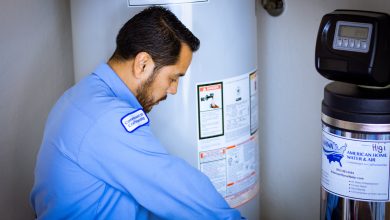How to Get a California Grower’s License: A Step-by-Step Guide

Understanding the California Grower’s License
A California grower’s license is essential for individuals and businesses looking to cultivate cannabis legally in the state. This license allows growers to operate within state regulations while ensuring compliance with local and federal laws. California offers various types of cultivation licenses depending on the size of the operation, canopy area, and growing method. Understanding the different license types and their requirements is crucial before applying.
Types of California Cultivation Licenses
Specialty Cottage License
Designed for small-scale growers, this license covers both indoor and outdoor cultivation with limited canopy size. It is ideal for those starting with a small operation.
Specialty License
This license applies to slightly larger operations, allowing a moderate canopy size for outdoor, indoor, or mixed-light cultivation. It is a step up from the cottage license and suits growers looking to expand.
Small Cultivation License
For those looking to cultivate cannabis on a more commercial scale, this license covers outdoor, indoor, and mixed-light operations with a larger allowable canopy area.
Medium Cultivation License
Aimed at larger growers, this license allows even more expansive cultivation but requires more regulatory compliance, including environmental and security measures.
Large Cultivation License
Although currently not available under state law, large-scale commercial cultivation operations will eventually need this license once permitted.
Nursery License
This license is designed for businesses that grow cannabis plants for clones, seeds, or immature plants to be sold to other growers rather than producing full-grown cannabis for distribution.
Processor License
If your operation focuses on drying, curing, and trimming cannabis but does not involve direct cultivation, a processor license may be a better fit.
Eligibility Requirements for a California Grower’s License
Age and Residency
Applicants must be at least 21 years old and have legal residency or business presence in California. Proof of residency or business registration within the state is required.
Business Entity Formation
To apply for a grower’s license, applicants must establish a legal business entity. This could be a sole proprietorship, partnership, limited liability company (LLC), or corporation. Registering with the California Secretary of State is necessary.
Compliance with Local Regulations
Each city and county in California has its own cannabis cultivation regulations. Some jurisdictions prohibit cannabis growing, while others allow it under strict zoning laws. Before applying, check local laws to ensure compliance.
Property and Land Use Approval
A key requirement is securing a suitable location for cultivation. The property must meet state and local zoning laws, and applicants must obtain approval for land use. Some locations require additional permits from local authorities before state applications can proceed.
Water Rights and Environmental Compliance
Growers must comply with the California State Water Resources Control Board regulations. Water usage must be documented, and any environmental impacts assessed. Compliance with the California Department of Fish and Wildlife may also be necessary.
Security and Operational Plan
Applicants must submit a security plan detailing how they will prevent theft and unauthorized access. This includes surveillance systems, access control, and record-keeping measures. An operational plan outlining cultivation methods, pesticide use, and waste management is also required.
How to Apply for a California Grower’s License
Register with the California Department of Cannabis Control (DCC)
The Department of Cannabis Control oversees cannabis licensing in California. Applicants must create an account on the DCC’s online portal to begin the application process.
Prepare Business Documents
Applicants need to submit various business documents, including proof of business formation, ownership details, and financial records. Some key documents include:
- Articles of Incorporation or Organization
- Taxpayer Identification Number (TIN)
- Seller’s Permit from the California Department of Tax and Fee Administration
- Local authorization letters from city or county officials
Submit Cultivation Plan
A detailed cultivation plan must be included in the application. This plan should cover:
- Canopy size and plant layout
- Lighting and irrigation systems
- Environmental impact mitigation strategies
- Pest and disease management plans
Obtain Background Checks
All owners and financial interest holders in the business must undergo a criminal background check. The state requires fingerprinting through the Live Scan system to verify the applicant’s history.
Pay the Required Fees
Application fees vary based on license type and canopy size. In addition to the initial application fee, annual licensing fees apply. These fees must be paid upfront during the submission process.
Submit the Application
Once all documents and payments are in place, the application can be submitted via the DCC’s online portal. It undergoes a review process, where state officials verify compliance before approval.
Post-Approval Requirements
Annual License Renewal
A California grower’s license is valid for one year and must be renewed annually. Renewal requires updating business records, submitting compliance reports, and paying renewal fees.
Track-and-Trace Compliance
All licensed cannabis cultivators must use the California Cannabis Track-and-Trace (CCTT) system to monitor plant growth, movement, and sales. This ensures transparency and prevents illegal distribution.
Tax Obligations
Growers must comply with California tax regulations, including cannabis excise tax, sales tax, and income tax. Maintaining accurate financial records is essential to avoid penalties.
Compliance Inspections
State inspectors conduct periodic inspections to ensure compliance with regulations. Growers must maintain records, implement security protocols, and follow environmental guidelines to pass inspections successfully.
Challenges in Obtaining a Grower’s License
High Costs
Licensing fees, property costs, and regulatory compliance expenses can be significant. Many growers face financial challenges in securing the necessary capital to start operations.
Local Restrictions
Even with a state license, growers must comply with local laws. Some counties ban cannabis cultivation altogether, making it difficult to find suitable locations.
Stringent Regulations
Strict environmental, security, and operational requirements create a complex application process. Many applicants struggle with documentation and compliance.
Benefits of a California Grower’s License
Legal Protection
Licensed growers operate legally within the state, reducing the risk of fines, shutdowns, or criminal charges.
Access to Dispensaries and Markets
Licensed cultivators can sell cannabis to licensed dispensaries and distributors, providing access to California’s multi-billion-dollar cannabis market.
Business Growth Opportunities
With proper licensing, growers can expand operations, form partnerships, and build a long-term cannabis business in California.
Final Thoughts
Obtaining a California grower’s license requires careful planning, compliance with state and local laws, and a thorough application process. Understanding the different license types, meeting eligibility requirements, and following state regulations will increase the chances of approval. While the process may be complex, the benefits of operating a legal cannabis cultivation business make it a worthwhile investment for those serious about entering the industry.




